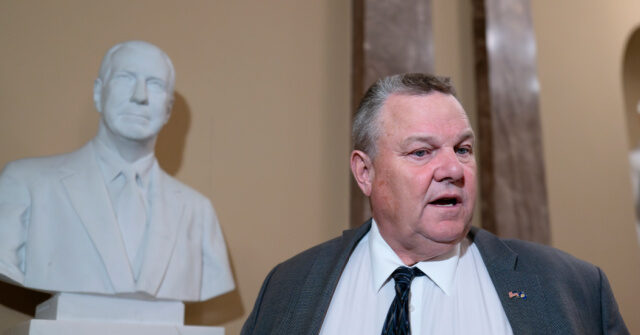As the election day approaches, hard-pressed Democrat candidates are distancing themselves from their migration records, a move driven by growing voter scrutiny surrounding immigration policies. Senator Jon Tester of Montana attempted to distance himself from the issue by releasing an advertisement proclaiming his opposition to providing benefits for illegal immigrants. However, this declaration contrasts sharply with his legislative history, as he has consistently voted in favor of funding that supports the sheltering, feeding, and transportation of millions of illegal migrants that have entered the United States during President Biden’s administration. This apparent contradiction highlights a broader trend among Democrats who, facing a challenging election cycle, seek to pivot away from policies that have become politically toxic amidst public backlash.
Similarly, Senator Tammy Baldwin from Wisconsin has defended her stance on offering amnesty to illegal migrants but acknowledged the necessity for thorough vetting and deportation of individuals with criminal records. Critics have seized on Baldwin’s comments, pointing out her past votes against stricter penalties for criminal illegal immigrants and her support for policies perceived as facilitating uncontrolled border crossings. Republican spokespersons have suggested that Baldwin’s sudden calls for caution are motivated by a desire to counter the rising popularity of her opponent, Eric Hovde, who advocates for stricter border security policies. This narrative underscores a growing concern among Democrats, reflecting the shifting sentiments of the electorate and the implications of their past policy positions as they approach the polls.
Across the nation, many Democratic candidates are employing advertising strategies aimed at obfuscating their migration records, focusing instead on more favorable topics like abortion, healthcare, and bipartisanship. According to a report by NBC News, abortion and immigration are among the top issues in Democratic advertising, with a significant number of recent ads addressing these topics. The emphasis on abortion signifies a tactical choice to highlight issues that resonate more positively with their voter base while attempting to sidestep controversial immigration policies that polls suggest are increasingly unpopular among swing voters. Meanwhile, Republican candidates are leveraging the immigration debate to their advantage, underscored by a noticeable increase in their investment in immigration-focused advertising.
Polling data reveals a clear trend of discontent among registered voters regarding current Democratic immigration policies, with a record 67 percent supporting the deportation of illegal migrants according to a Fox News poll. This sentiment is consistent across demographic lines, showing substantial support for enforcement of existing immigration laws, particularly among moderates and conservatives. These findings underscore a disconnect between the Democratic establishment’s approach to immigration and the expectations of their constituents, creating an environment ripe for potential electoral backlash. As concerns about the economic implications of high levels of immigration, particularly in terms of job competition and social services, grow, Democrats appear increasingly vulnerable on this issue.
The influx of migrants into American cities has resulted in significant challenges for local communities, straining resources and social services. Reports from regions like New York describe the grassroots efforts to support the scores of newly arrived migrants who often come without basic necessities or a robust support network. Personal testimonies illustrate the struggles these families face, grappling with unstable employment and limited access to housing. Such accounts shed light on the often-overlooked difficulties this population endures as they navigate life in a new country, amplifying the argument for more coherent and sustainable immigration policies that could address the needs of both migrants and established local residents.
In a contradictory political landscape, Vice President Kamala Harris has made promises to enhance border security, even as she advocates for amnesty and increased economic migration through asylum and chain migration loopholes. This dual approach highlights the complexity of the immigration debate within the Democratic party, as leaders try to balance progressive ideals with the practical realities of governance and public sentiment. As election day draws near, the Democrats’ predicament becomes increasingly apparent: they must confront the ramifications of their past immigration policies while navigating a voter landscape that is growing dissatisfied with the status quo. The outcome of this electoral cycle may significantly shape the future of immigration policy in the U.S., highlighting the urgent need for a more pragmatic and cohesive approach to this contentious issue.

